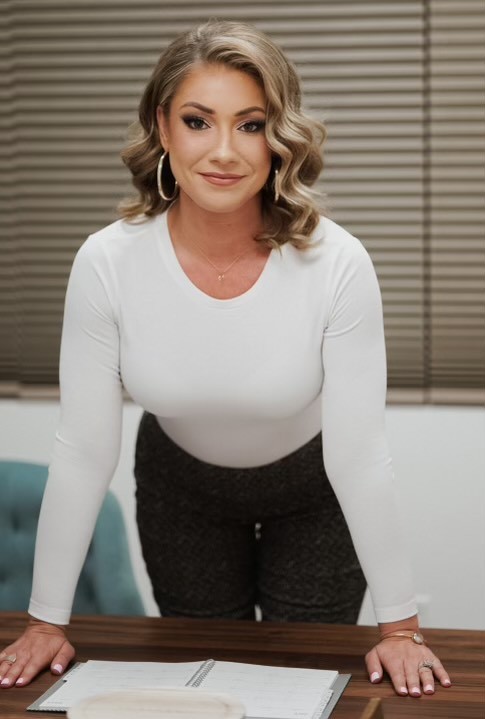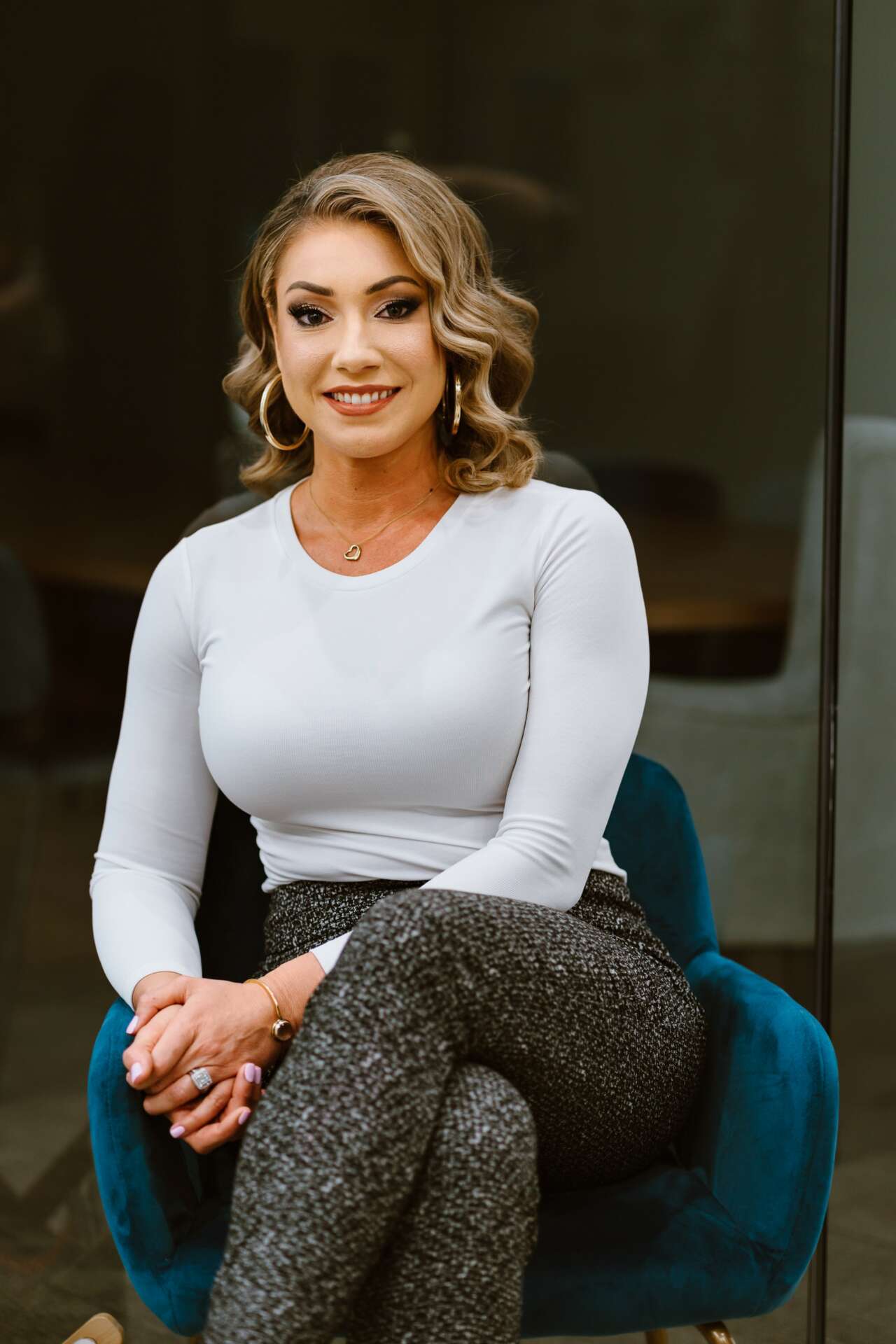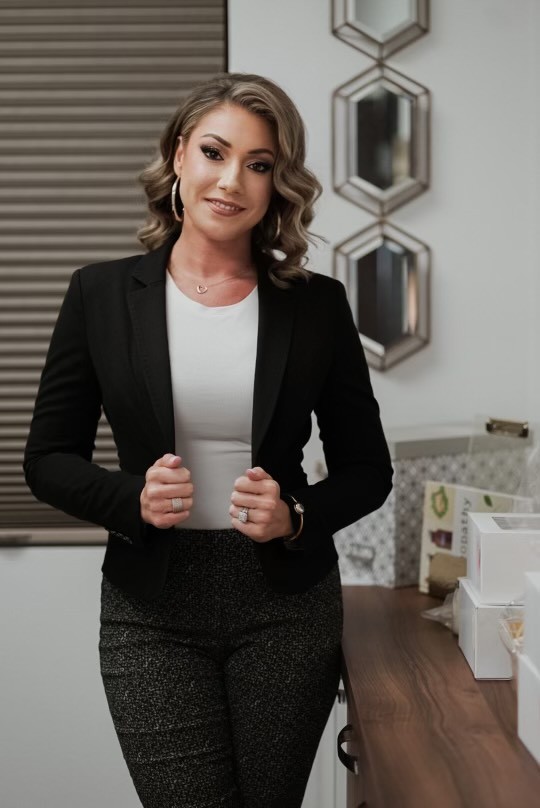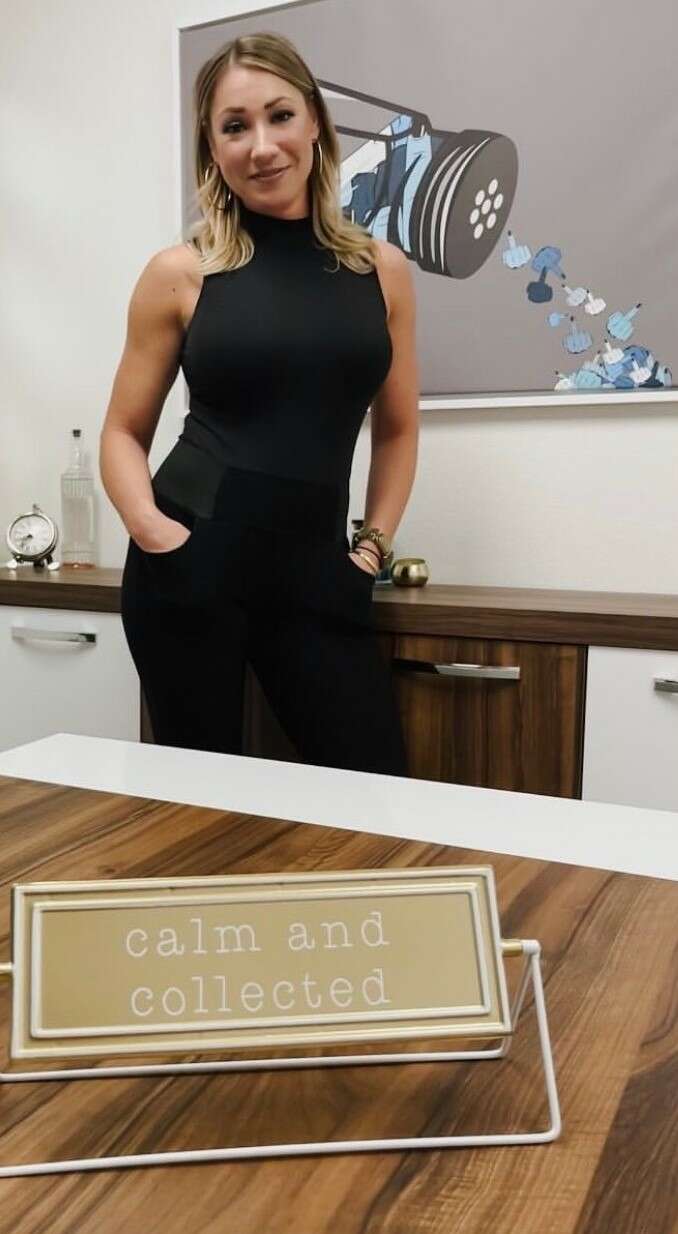We recently connected with Jessica Hass and have shared our conversation below.
Jessica, appreciate you joining us today. Can you share an important lesson you learned in a prior job that’s helped you in your career afterwards?
I’ve had several twists and turns throughout my employment history, but lessons I learned at a previous mental health agency ultimately molded me into the business owner and type of supervisor that I am today. At this agency, the clinicians were treated like dogs being run around a track, chasing those dollars for the agency and its financial benefactors. It takes the luster out of our practice as mental health providers when we are encouraged or sometimes coerced to see clients in rapid succession with little regard to our professional efficacy, clinical effectiveness, and mental burnout.
This experience taught me, most importantly, that any business/practice is only as good as the people who work for and represent it. Without loyalty, good work ethic, dedication, integrity, and trust, managing any business well is impossible, especially mental/behavioral health where there’s already usually a barrier to trust with clients. My clinicians and staff are a direct reflection, ‘the face’, of our agency. That’s why I show appreciation to the clinicians and staff at my practice as often as I can – both verbally and through acts of kindness – so that they know how much they are appreciated and valued.
Another important lesson I’ve learned sporadically throughout my 27 years of employment history is to stay humble and never assume inevitable success. I’ve had many very successful bosses in my time, and it seems the ones I always admired the most and had the most success used these tactics as important methods of grounding themselves and keeping their eyes on the prize.
I never place myself in a direct position of authority when interacting with the clinicians and staff at my practice because, who am I? Especially without them. It’s easy to let being in a position of authority or having financial success carry you away – especially if you grew up in a low income household, like me – but humility along with persistent reminders that I’m not ultimately where I want to be in life keep me appreciative, rational, and continuously persevering.


Jessica, before we move on to more of these sorts of questions, can you take some time to bring our readers up to speed on you and what you do?
I became a Licensed Clinical Social Worker (LCSW), which is just a certain brand of therapist, as a result of intending on ‘helping’ our community and society at large in law enforcement. Through that journey, I was exposed to inmates at Florence McClure Women’s Correctional Center in Southern Nevada, where I was able to talk with the inmates about the therapy the prison was providing them. I even got to observe some of their group therapy sessions, and that’s when it hit me – by becoming a therapist, I would be able to truly help.
After completing my Masters in Social Work at UNLV and working and dipping my toe into the profession by working for agencies in Las Vegas as a clinician, I got a really sour taste in my mouth about the variety of outpatient mental health agencies that we have to choose from as providers. While I hadn’t worked at all of them, I worked at enough throughout Clark County in the 4 years before starting my own practice to realize that we were lacking in reputable agencies that are clean, professional, ethical, and value their clinicians. That’s when, in 2019, I decided to start my own agency where I would encompass these values and many more with the intent of changing the mental health game in our community.
Not only do we pride our offices on the fact that they’re professional, clean, almost spa-like, and welcoming, Theravada as an agency, as well as our individual clinicians, employ an approach and outlook to mental health services that we intend to lift the heavy weight and stigma around ‘getting therapy’. We try to make our clients, as well as the community at large who may be seeking therapy services, approach looking for a therapist or going to see a therapist as similar to getting a massage, gong to the gym, or seeing a dentist. Not that mental health is as basic as a workout or a teeth cleaning, but despite the complexities surrounding tending to your mental health needs, we want therapy to be seen as just as routine, necessary, and ‘typical’.
Theravada is also compiling a long list of support groups to offer both in our offices and in the community. We want mental health services to be acquired through productive, creative, innovative, and fun ways to further our efforts at casting the de-stigmatization net out to a wider audience. We intend on integrating these resources and activities focused on promoting mental health in a variety of community venues and events.


Can you tell us about a time you’ve had to pivot?
As a therapist, it’s my role oftentimes to guide my clients through navigating life’s unexpected twists, turns, and avalanches. While I can seemingly do that pretty effectively, it’s admittedly more difficult to help myself navigate my own life events.
I never pictured myself as a business owner. I really wanted to invest in the real estate market and make passive income, cashing those checks down the road in a bank close to the beach house I would be living in surrounded by peace and serenity. Sounds wonderful, right? That’s not what life had in store for me, though, at least yet.
At the time I bought my business and formed Theravada, I was fortunate enough to have a relatively large chunk of change in the bank due to the sale of my first home (timing is everything, right?). My intention was to buy a home for myself to reside in, then I would use the rest to put as a down payment on an investment property. Before those plans came to fruition, I found myself with a 1 year office lease, three employees to for which to resolve financial debts owed by the previous business owner, and the responsibility of keeping the ship of my professional career that I was the only captain available to steer back to shore, as inexperienced and ignorant as I was, on course.
Getting my business up and running to the point I no longer worked 80+ hour weeks took about a year and a half, then I was working 60+ hours per week for another year and a half, and finally, almost 3 and a half years into owning the business, I’m working a little over 40 hours per week. I look back at that cash that once lined my bank account that I intended to be the catalyst toward my golden ticket of financial and occupational freedom, and I ask myself, “Would I change it all if I could go back?” The answer, simply put, is no. It’s been a very tough few years, don’t get me wrong, and I sacrificed a lot, including a long term relationship that sunk amidst the stress of keeping my ship on course, but ultimately, I’m doing what I’m passionate about which makes everything worthwhile.
I weathered the storm (although as a business owner, you’re never completely in clear skies), and the fuel that keeps me going is creating job opportunities, expanding services for members and families in our community, keeping myself intellectually stimulated, and waking up everyday knowing that I have a purpose. Owning investment properties wouldn’t have given me purpose and the beauty is, I can still do that if I want to, but now I have something to look forward to, something that drives me. If. you have the entrepreneurial spirit, you’ll understand what I mean.
Any advice for growing your clientele? What’s been most effective for you?
Theravada’s success if predicated on, first and foremost, our team of clinicians. These are the individuals who operate on the ‘front line’, build positive relationships with their clients, and who represent our agency most prominently. Every clinician has their own style and method, which I respect, because there’s an infinite amount of people out there who would benefit from those various styles, but I try to focus our practice on hiring clinicians who want to be apart of a team and take the extra step for the agency as well as their clients.
The atmosphere at our offices is also important. When a client shows up for their very first session with a therapist, their anxiety is often triggered, or they’re hypervigilant, looking for a reason to cancel, quit, or dislike what they’re about to go through. I want to limit these barriers to effective and comfortable treatment by providing an atmosphere where they can feel comfortable and well taken care of.
I also conceptualize every individual client as a personal client of mine because, well technically, they are. They are a client receiving services at my agency with a clinician that I chose to represent us. I want that client to have as good of an experience as a family member or friend. Unfortunately, I’m only one person, so I can’t prevent every issue from arising, but when one does, I make myself available for the client and/or the clinician to address, personally, until the issue has been resolved.
I think Theravada, as an agency and a brand, represents such a wide array of personalities, preferences, lifestyles, and populations that we have a knack to making most everyone feel welcome and a part of something great.
Contact Info:
- Website: www.theravadawellness.com
- Instagram: @theravadawellness
- Facebook: https://www.facebook.com/TheravadaWellness
- Yelp: https://www.yelp.com/biz/theravada-mental-health-las-vegas-4?osq=theravada+mental+helath


